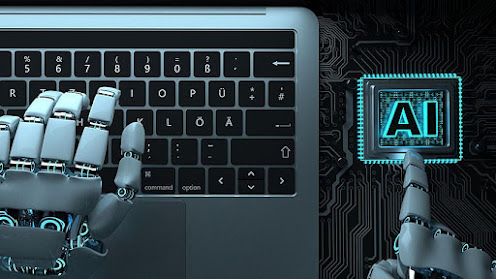A blog post about the top 6 facts and fiction about Artificial Intelligence.
Artificial Intelligence (AI) is a rapidly evolving technology that has already begun to transform various industries, including healthcare, finance, and transportation. Despite the growing adoption of AI, there is still a lot of confusion and misinformation surrounding it. In this blog post, we will explore the top 6 facts and fiction about AI.
Fact #1: AI is not a new technology
The idea of creating intelligent machines has been around
for centuries. However, the term "artificial intelligence" was coined
in 1956 at the Dartmouth Conference. Since then, AI has evolved significantly,
thanks to advances in computing power, machine learning, and natural language
processing.
Fiction #1: AI will replace human intelligence
One of the biggest misconceptions about AI is that it will eventually replace human intelligence. While AI is capable of performing certain tasks more efficiently and accurately than humans, it still lacks the creativity, intuition, and empathy that are unique to humans.
Fact #2: AI can help humans make better decisions
AI can analyze vast amounts of data and identify patterns
that humans may not be able to detect. This makes AI an excellent tool for
decision-making in various fields, including finance, healthcare, and
marketing.
Fiction #2: AI is biased and unethical
AI is only as unbiased and ethical as the data it is trained
on. If the training data is biased or unethical, the AI system will also be
biased or unethical. It is up to humans to ensure that AI is used in a
responsible and ethical manner.
Fact #3: AI can enhance cybersecurity
AI can help detect and prevent cyber attacks by analyzing
patterns and anomalies in network traffic. This makes it an invaluable tool for
protecting sensitive data and preventing cybercrime.
Fiction #3: AI will make human jobs obsolete
While it is true that some jobs will become automated with
the help of AI, many new jobs will also be created. AI can help humans focus on
higher-level tasks that require creativity and critical thinking, while mundane
and repetitive tasks are automated.
Fact #4: AI can be used to improve healthcare
AI can analyze patient data and medical records to identify
patterns and make more accurate diagnoses. It can also help predict disease
outbreaks and develop personalized treatment plans.
F
There is no evidence to suggest that AI poses a threat to
human health. However, it is important to ensure that AI-powered medical
devices and systems are thoroughly tested and regulated to ensure their safety
and efficacy.
Fact #5: AI can help address climate change
AI can be used to analyze climate data and develop more
accurate models for predicting weather patterns and climate change. It can also
be used to optimize energy consumption and reduce carbon emissions.
Fiction #5: AI is taking over the world
AI is a tool that is only as powerful as the humans who
control it. While there are concerns about the potential misuse of AI, it is up
to humans to ensure that AI is used in a responsible and ethical manner.
Fact #6: AI can improve transportation
AI can help optimize traffic flow and reduce congestion,
making transportation more efficient and environmentally friendly. It can also
be used to develop self-driving cars and other autonomous vehicles.
Fiction #6: AI is a threat to privacy
AI can be used to process vast amounts of data, including
personal data. However, this does not mean that AI is inherently a threat to
privacy. It is up to humans to ensure that AI-powered systems and devices are
designed with privacy in mind.





0 Comments